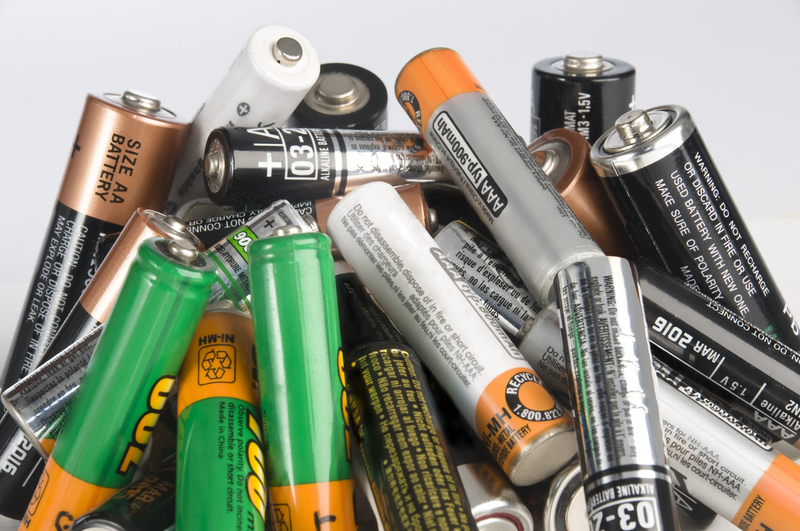How to Recycle and Save on Bulky Waste Item Disposal
Dealing with bulky waste items like old furniture, broken appliances, mattresses, or large electronics can be a hassle. Many of us are left wondering how to properly dispose of these items without harming the environment or spending a fortune. Fortunately, there are cost-effective options that enable you to recycle and save money during bulky waste disposal. This comprehensive guide will offer everything you need to know about responsible, budget-friendly disposal and recycling solutions for large waste items.
Understanding Bulky Waste Items
Bulky waste, also known as bulk waste, refers to items that are too large and heavy for regular garbage or curbside collection. This often includes:
- Couches and sofas
- Beds and mattresses
- Refrigerators, washing machines, and other large appliances
- Carpets and rugs
- Bathtubs and toilets
- Large pieces of scrap metal or wood
- Bicycles
- Old TVs and other oversized electronics
Improperly handling these items can negatively impact the environment, as many components contain materials that are recyclable, reusable, or require special treatment. Learning how to recycle bulky items or find affordable disposal options is essential for any conscientious homeowner.

Why It's Important to Recycle Bulky Waste Items
Many components found in bulky waste (like metals, plastics, foams, and electronics) can harm the environment if sent to landfills or incinerated. Recycling and proper disposal of these items helps to:
- Reduce landfill waste and the land required for dumping
- Prevent hazardous substances (e.g. mercury, lead, refrigerants) from polluting soil and water
- Conserve natural resources by reclaiming raw materials from old items
- Lower your personal waste disposal costs
- Support the circular economy by giving items or materials a second life
By practicing responsible bulky item recycling and disposal, individuals and businesses play a vital role in environmental preservation and resource conservation.
How to Prepare Bulky Waste Items for Recycling or Disposal
Before removing heavy or oversized objects, it's important to prepare them for eco-friendly disposal:
- Check Local Regulations: Every municipality has unique rules for bulk item disposal and recycling. Review your city or town's waste management website for accepted items and guidelines.
- Separate Parts: Disassemble items to separate recyclable components (e.g., remove metal frames from sofas, or take doors off appliances).
- Clean and Dry: Remove excessive dirt, fluids, or food from items to facilitate recycling and reduce mess.
- Secure Sharp or Hazardous Parts: Tape down sharp edges, remove refrigerants from appliances (use a certified technician), and keep chemicals contained.
- Take Photos: If listing items for pickup or donation, clear photos help attract takers and clarify condition.
Common Bulky Waste Items and Their Safe Disposal Methods
- Mattresses: Many cities offer mattress recycling programs. Components like metal springs and cotton fibers are reclaimable.
- Appliances: Remove all fluids and consult e-waste recycling programs for refrigerators, freezers, and AC units.
- Electronics: TVs, computers, and printers often require electronic waste (e-waste) disposal due to hazardous elements.
- Furniture: Couches and large furniture pieces are often accepted at municipal reuse centers or pickup days.
Top Ways to Recycle and Save on Bulky Waste Item Disposal
Disposing of oversized objects doesn't mean you have to spend a fortune or send everything to the local dump. Below are cost-saving strategies for bulky item removal and recycling:
1. Use Municipal Bulky Waste Pickup Services
Many municipalities offer free or low-cost bulk waste collection days throughout the year. Here's how to make the most of these services:
- Sign up on your city's official website or call your local waste management office to confirm collection dates and criteria.
- Place approved bulky items (such as sofas, beds, and appliances) curbside on the designated day.
- Follow all guidelines--some items may require stickers or pre-approval, and certain materials may not be accepted.
- Pro tip: Team up with neighbors so everyone can maximize their bulk waste allowance and save on potential fees.
2. Rent a Roll-Off Dumpster (For Large Projects)
If you're dealing with significant quantities (after a home renovation or estate clean-out), renting a small roll-off dumpster can actually be a budget-friendly way to dispose of bulk items. Be sure to ask the rental company:
- Which materials are allowed (some dumpsters exclude appliances or electronics)
- If they provide sorting or include recycling options
- What are the weight and time limits to avoid extra charges
3. Take Advantage of Local Recycling Centers
Most towns or counties have recycling drop-off centers that accept large items for free or a nominal fee. These are typically operated by municipal governments or private partners. You'll often find designated bins or areas for:
- Metal and scrap (bed frames, grills, appliances without refrigerants)
- Hard plastics (broken bins or outdoor furniture)
- Electronics and e-waste
- Textiles and mattresses
Check your nearest center's website to confirm accepted items, proof of residency requirements, and drop-off instructions before visiting.
4. Donate Usable Bulky Items
Many organizations and charities gladly accept gently used bulk items, such as:
- Furniture (sofas, desks, beds, tables)
- Appliances (if working and relatively modern)
- Large children's toys or bicycles
Groups like Goodwill, Habitat for Humanity ReStores, and local shelters often provide free pickup services, sparing you both disposal costs and heavy lifting. Always call ahead or check donation criteria. Clean and repair items before donating, and request a donation receipt for potential tax deductions.
5. Sell or Give Away Bulky Items Online
Platforms such as Craigslist, Facebook Marketplace, and Nextdoor make it easy to find new homes for bulky waste--sometimes even broken items are wanted for parts or upcycling projects.
- Take multiple, clear photos of each item (showing any flaws)
- Write honest, detailed descriptions
- Set a fair price; consider offering items for free if you want a fast pickup
- Coordinate safe, contactless pickups
6. Contact Scrap Metal Dealers or Junk Removal Companies
If you have metal-heavy objects (bed frames, appliances, exercise equipment), scrap metal yards might pay you for materials by weight. For mixed or non-recyclable items, compare quotes from local junk removal companies--some provide discounts for separated recyclables or scheduled community pickups.
How to Recycle Bulky Electronics
Large electronics, or e-waste, should never be thrown in the trash. TVs, computers, printers, and entertainment systems contain hazardous materials like lead, mercury, and flame retardants that must be handled properly.
Steps to Save Money and the Planet with E-Waste Disposal:
- Find a certified e-waste recycler: Locate e-Stewards or R2-certified drop-off sites in your area.
- Use retailer take-back programs: Many stores (Best Buy, Staples, Home Depot) recycle old electronics for free or a small fee.
- Look for municipal e-waste collection events: Many cities offer annual or quarterly electronics recycling days for residents.
Never attempt to take apart TVs or appliances containing hazardous materials on your own; always use certified recyclers.
How to Save on Disposal of Construction Bulky Waste
If you're remodeling your home or clearing out after a renovation, consider these strategies to save money on construction bulky waste disposal:
- Reuse materials: Salvage doors, lumber, and fixtures for other projects or donate them to organizations like Habitat for Humanity.
- Separate waste streams: Keep metal, wood, concrete, and drywall sorted--many transfer stations offer lower fees for separated materials or accept them for recycling.
- Share a dumpster: Coordinate with neighbors to split a dumpster rental for joint savings on bulky construction material.
Eco-Friendly Alternatives to Throwing Away Bulky Items
Rather than sending bulky waste to the landfill, consider these creative and eco-friendly alternatives:
- Upcycling: Repurpose old furniture or building materials for home improvement or art projects (e.g., turning pallets into garden planters or shelving).
- Community swaps: Organize a neighborhood swap event where residents exchange usable bulk items.
- Repair cafes: Attend local repair events to fix appliances, electronics or furniture rather than tossing them out.
When you recycle and repurpose bulk waste, you not only save on removal costs--you also give value to items that others may need.
Reducing Future Bulky Waste Generation
Prevention is always cheaper and greener than disposal! Here are steps you can take to reduce future bulky waste in your home:
- Choose quality over quantity: Invest in durable, repairable furniture and appliances.
- Practice minimalism: Avoid buying oversized or seldom-used items.
- Borrow or rent: For large tools or equipment, consider renting rather than owning.
- Maintain what you have: Regular cleaning and maintenance can extend the life of big items by years.

Frequently Asked Questions about Bulky Waste Recycling and Disposal
- How do I find my city's bulky waste collection schedule?
- Visit your municipality's public works or waste management department website, or call their customer service number. Some cities publish calendars or mail reminders to residents.
- Are there any bulky items that cannot be recycled?
- Yes. Certain items like soiled mattresses, hazardous chemical containers, or some upholstered furniture may not be accepted for recycling or donation due to safety, contamination, or local restrictions. Always check your local guidelines.
- Can I get fined for improper bulky waste disposal?
- Yes. Dumping large items illegally (on sidewalks, alleys, or vacant lots) may result in municipal fines. Always use approved methods or recycling programs.
- Is it possible to earn money from bulky waste?
- In many cases, yes! Scrap metal, working appliances, vintage furniture, and designer items can be sold for cash locally or online.
- How do I move heavy bulky items safely?
- Always use proper lifting techniques, enlist help, and use tools like dollies, sliders, or straps. If moving upstairs or tight spaces, consider professional movers or junk removal services.
Conclusion: Save Money, Save the Planet with Responsible Bulky Waste Disposal
Properly managing bulky waste items doesn't have to cost a fortune or harm the environment. By following the strategies outlined in this guide, you can recycle, reuse, or dispose of large items affordably and responsibly. Whether you're using municipal programs, donating, recycling, selling, or upcycling, your efforts help build a cleaner community and conserve valuable resources.
For further information or to locate specific disposal and recycling options in your area, visit your local government or waste management website. Every step you take to recycle and save on bulky waste item disposal benefits both your finances and the planet!
